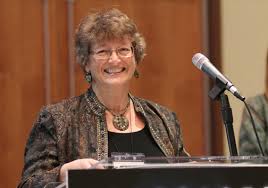Fighting ghosts

Jew in the Christian World
Jewish Family Education Series
By Candace R. Kwiatek, The Dayton Jewish Observer
Mention to a Jewish audience that 56 percent of Israel’s tourists in 2015 were Christian and you’ll see an untroubled yawn.
Note that the Jewish state owes its renaissance in part to evangelical Christians and you’ll generate quizzical interest.
But point out that Christians are some of Israel’s best friends and you’ll get one of three responses: appreciative agreement, incredulous disbelief, or dismissive cynicism.
The latter uncomplimentary Jewish reactions — fueled by Church history, theology, and politics — are understandable.
But these attitudes are worth reevaluating in light of theological developments and international interests.
In Judaism, history is very much a part of the present. After all, Jews annually commemorate the Exodus (1200 B.C.E.) with a seder, celebrate the Maccabees’ victory (164 B.C.E.) during Chanukah, and mourn the destruction of the Second Temple (70 C.E.) on its anniversary, Tisha B’Av.
Thus, it should be no surprise that historical events of the modern era such as the Crusades (beginning in 1096), the Inquisition ( beginning in 1232), and the Spanish expulsion (1492) — symbols of two millennia of anti-Jewish legislation, persecution, violence, forced conversion, expulsion, and murder sanctioned by the Church and more recently adopted by the Nazis — are perceived as current events. The repercussion is that Jews are justifiably wary of Christianity.
Fundamental to the Roman Catholic Church’s historical record was replacement theology (supersessionism). As David Brog points out in his book Standing With Israel: Why Christians Support The Jewish State, this is the teaching that “when the Jews rejected Christ, the church replaced them as the true Israel and the beneficiaries of God’s promises to Abraham.”
Brog, the former executive director of Christians United for Israel (CUFI), is now director of the Maccabees Task Force, an anti-BDS project funded by Sheldon Adelson.
Elevated to official church doctrine and adopted by early Protestantism, replacement theology was reinforced in Christian lands by widely variable and inventive laws that used degradation and suffering to turn the Jews into witnesses, living proof, Brog writes, “that God had embraced a new partner in covenant.”
Ultimately, replacement theology prepared the ideological and social climate necessary for Hitler’s objectives.
As a result of much soul-searching in the aftermath of the Holocaust, both the Vatican and most Protestant denominations eventually rejected replacement theology, but its lingering effects are not so easily erased.
Protestant America embraced replacement theology as well, but its focus was on evangelism and social reform through the church rather than on discrediting Judaism.
During the latter years of the 19th century, however, the majority of Protestant fundamentalists, though not all, rejected it in favor of dispensationalism.
Evolving from a literal interpretation of the Bible, this theology describes God’s interactions with humankind as unique and discrete divine plans or “dispensations.”
For the Jews, that plan is to eternally remain God’s chosen people and heirs to the land of Israel in fulfillment of God’s promises to Abraham.
Guided by the verse “I will bless those who bless you and curse those that curse you (Gen. 12:3),” these Christians ascertain that part of their unique plan is to support Israel — the people and the land — the very definition of Christian Zionism.
Estimates of Christian Zionist adherents range from 17 million (Jerusalem Post) to 68 million (Religion News Service).
Largely unfamiliar with these significant theological changes, Jews presume that Christians’ negative views of Jews as misguided, rejected, and damned still prevail.
What are some other roadblocks to Jewish acceptance of Christian Zionists?
There is a wide perception of an underlying agenda to convert Jews. Former Jewish Agency executive Dr. Misha Galperin has observed that Jewish institutions rarely reach out to pro-Israel Christians because they are wary of the proselytizing potential.
This reticence isn’t helped by the few Christian Zionists who preach contemporary evangelism in contrast to the majority who believe all humans will be inspired to recognize the messiah in some divinely-appointed final dispensation, a future end-of-days theology that has little direct impact on behavior in the here-and-now.
These dispensationalist Christian Zionists are theologically opposed to converting Jews, the eternal chosen people. In the words of Return Ministries founder Dean Bye, “You don’t circumcise me and I won’t baptize you.”
That pro-Israel Christians fund aliyah — the ingathering of Jewish exiles to Israel — in order to bring about the final redemption elicits concern.
While these funds do support the American aliyah effort Nefesh B’Nefesh, they primarily rescue endangered Jews in the former Soviet Union and France.
In Judaism, actions are more important than beliefs or motives; shouldn’t we focus on the funding’s accomplishments rather than theology?
Another cause for misgiving is the political and social conservatism of Christian Zionists. In the view of predominantly liberal Jewry, this conservatism threatens Jewish civil rights and liberties by its stances on gay marriage, the separation of church and state, and Israel’s borders and settlements.
However, the Torah teaches the obligation to assist even an adversary in order to do the right thing: “When you see the ass of your enemy lying under its burden and would refrain from raising it, you must nevertheless raise it with him (Ex. 23:5).” Jews are commanded to find ways to work with their opponents in the service of the Jewish state.
Many American Jews live in the traumatic past, assuming that Christian attitudes toward Jews today are similar to those of prior centuries, Brog writes. They have failed to notice that “the enemy they fear has long since become a friend. These Jews are fighting ghosts.”
Instead, we should welcome the millions of Christian Zionists willing to stand with us in support of tiny, beleaguered Israel. And who knows, perhaps they have come about for just such a time as this.
Literature to share
Standing with Israel: Why Christians Support the Jewish State by David Brog. The author’s extensive research, historical anecdotes, and personal experience on Capitol Hill bring to light some surprising dimensions to American Christians’ support for the state of Israel and for the Jewish people in general. An easy to read work on a topic of critical import in today’s world, Standing with Israel is critical to understanding our Christian neighbors and friends.
For additional interesting reading, see:
Christian Zionists funding Israel immigration still scares Jews by Amanda Borschel-Dan (The Times of Israel, 12/14/15)
The top four Jewish worries about Christian Zionism by Jeffrey Salkin (Religion News Service, 3/11/15)
What (really) motivates Evangelicals? by Robert Stearns (The Jerusalem Post, 12/3/14)
To read the complete January 2016 Dayton Jewish Observer, click here.





